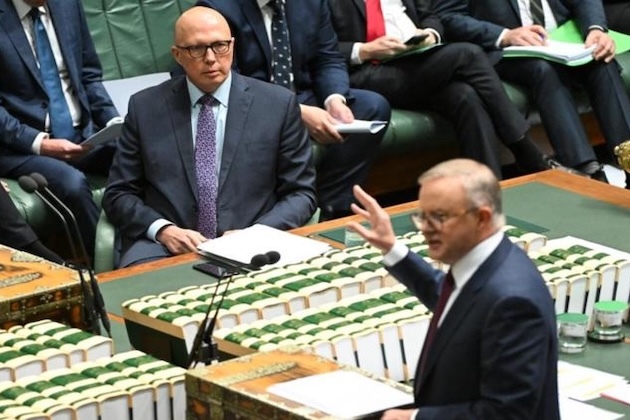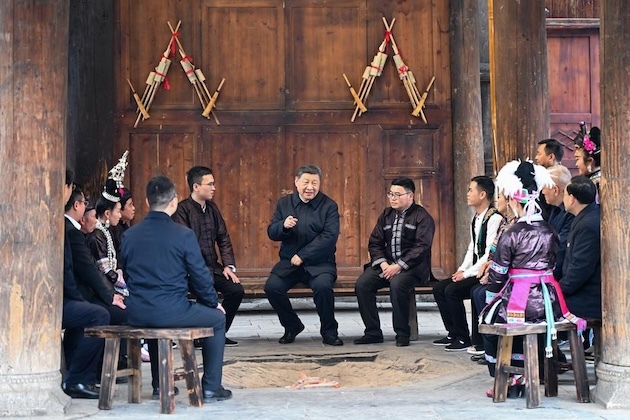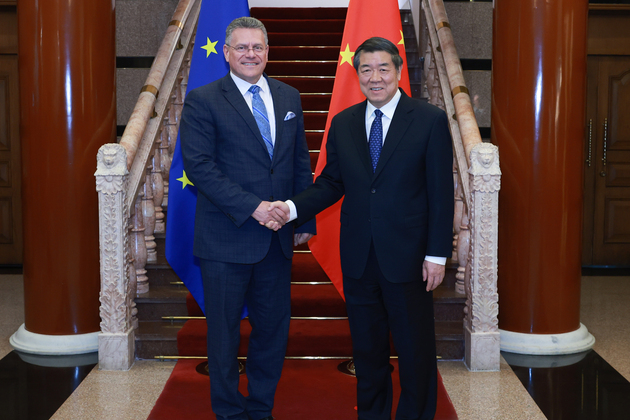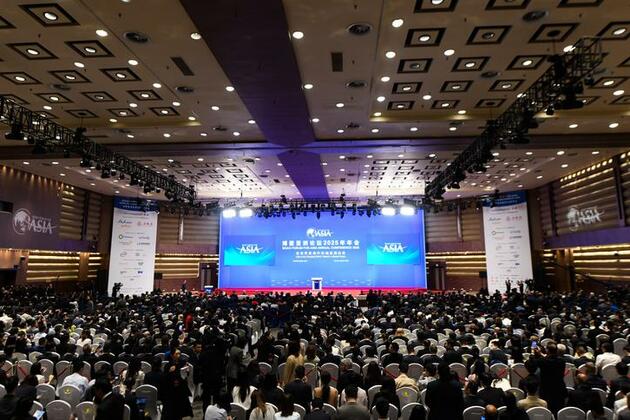South Korea Scrapping Intel Pact Strains US Alliance
Voice of America
23 Aug 2019, 23:35 GMT+10
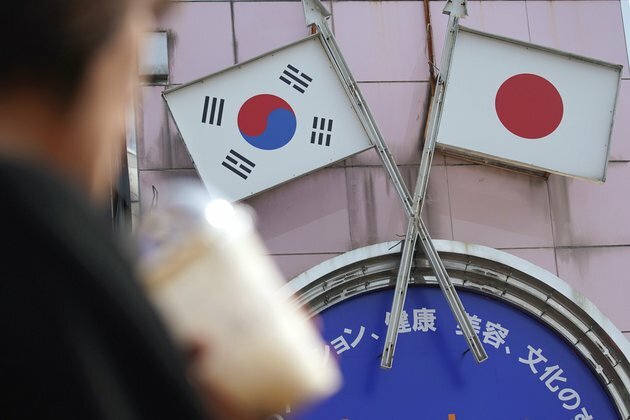
South Korea's decision to end a military intelligence sharing pact with Japan won't necessarily have an immediate impact on regional security, but the move could challenge the U.S.-South Korea alliance at a particularly tense moment, analysts warn.
South Korea announced Thursday it does not plan to renew the intelligence sharing agreement, escalating Seoul's bitter trade dispute that is rooted in historical tensions with its colonial occupier Japan.
The move was a blow for the United States, which helped negotiate the deal in hopes it would allow South Korea and Japan to work more closely on challenges including North Korea, China, and Russia.
Japan and South Korea will still technically be able to share military intelligence without the agreement, signed in late 2016. But the process will be more difficult and possibly slower, with much of the intelligence now likely passing first through the United States.
That could hamper cooperation in a crisis. It could also complicate efforts to monitor North Korean provocations at a particularly tense time; North Korea has conducted eight short-range missile launches since May and has threatened to resume nuclear or long-range missile tests.
But the biggest immediate impact could be how the decision affects relations between South Korea and the United States, which next month will begin another contentious round of negotiations over how to share the cost of the U.S. military presence in South Korea.
"This is not a matter of life and death," says Bong Young-shik with Yonsei University's Institute for North Korean Studies in Seoul. "But it greatly undermines the credibility of South Korea as a security partner in the eyes of the United States."
'Strong concern and disappointment'
Senior U.S. officials, including Secretary of State Mike Pompeo and Defense Secretary Mark Esper, had publicly expressed hope South Korea would renew the deal. Japan also supported renewing it.
On Thursday, Pompeo said he was "disappointed" in South Korea's decision. The Pentagon went further, expressing "strong concern and disappointment" that South Korea refused to renew the agreement.
"We'll continue to pursue bilateral and trilateral defense and security cooperation where possible with Japan and (South Korea)," said a Pentagon spokesman, Lt. Col. Dave Eastburn.
In a statement Friday, South Korea's deputy national security adviser insisted Seoul "maintained close communications with the United States" as it reviewed the deal.
"The ROK government will work to ensure that the latest decision will serve to not weaken the ROK-U.S. alliance, but actually upgrade the alliance so that it becomes even more solid," said Kim Hyun-chong, using the abbreviation for South Korea's official acronym.
Instead, he said South Korea will actively use a trilateral information sharing channel, with the United States as the intermediary.
What is GSOMIA?
The bilateral intel-sharing pact - called the General Security of Military Information Agreement, or GSOMIA for short - did not actually require intelligence sharing between South Korea and Japan.
Instead, the document, which is five pages in English, served as a framework for when the two sides did decide to share sensitive information, mainly outlining procedures such as who could access the data and how it should be destroyed.
It isn't clear how often South Korea and Japan shared information under GSOMIA. But regardless, it still helped complement each others' shortcomings when it came to common challenges like North Korea, analysts say.
"It's not just symbolic. Both sides have much to gain," says Sung-Yoon Lee, a Korea expert at Tufts University's Fletcher School.
For instance, Japan offers the ability to monitor North Korea using more sophisticated satellites, radar, and surveillance planes, while South Korea is believed to have the edge when it comes to spies and other human resources.
"There will definitely be an impact on military and intelligence operations," says David Maxwell, a former U.S. special forces colonel in the U.S. Army, who served in South Korea.
"With the U.S. acting as the middleman, information flow will be slower," says Maxwell, now with the Foundation for Defense of Democracies. "And, of course, this plays into [North Korean leader] Kim Jong Un's - and Chinese and Russian - hands to disrupt U.S. alliances."
Cost-sharing negotiations
Some in Seoul fear the timing is especially bad, speculating U.S. President Donald Trump may use the issue to gain leverage against South Korea in upcoming cost-sharing negotiations.
"By walking away from GSOMIA, South Korea becomes more vulnerable to pressure from the U.S. to pay more for its own national defense, including assuming more portion of defense costs and deploying its own troops to guard civilian vessels in the Strait of Hormuz," says Yonsei University's Young-shik.
"It's a give and take. Since South Korea has folded one of its bargaining cards with the U.S., its bargaining position has been weakened," he says.
Trump has recently intensified his long-standing complaints that South Korea and other U.S. allies aren't paying enough for the cost of U.S. troops on their soil.
Earlier this month, Trump tweeted that South Korea had agreed to pay "substantially more" for the U.S. military presence. Seoul shot back, saying the talks hadn't even begun.
Trump's treatment of the U.S.-South Korean alliance has already provoked a small but intense backlash among South Korean conservatives, who were already skeptical of his outreach to North Korea.
In South Korea, a Small But Notable Backlash Against Trump 'No other US president has insulted South Koreans like that'
Trump hasn't yet responded to Seoul's decision on GSOMIA.
Mintaro Oba, a former State Department diplomat who focused on the Koreas, doubts the Trump administration will make a deliberate decision to impose costs on South Korea in response to GSOMIA. But there are inevitable side effects when there is "major friction in an alliance," he says.
"I would speculate this will strengthen this administration's lean toward Japan and favoring of Japanese positions in Korea-Japan disputes, and result in a less cooperative U.S. stance on alliance issues across the board - from cost-sharing talks to North Korea policy coordination," he says.
 Share
Share
 Tweet
Tweet
 Share
Share
 Flip
Flip
 Email
Email
Watch latest videos
Subscribe and Follow
Get a daily dose of Japan Herald news through our daily email, its complimentary and keeps you fully up to date with world and business news as well.
News RELEASES
Publish news of your business, community or sports group, personnel appointments, major event and more by submitting a news release to Japan Herald.
More InformationAsia Pacific
SectionHyundai to invest $20 billion in US, build steel plant in Louisiana
WASHINGTON, D.C.:/SEOUL: Hyundai Motor Group is set to dramatically expand its U.S. footprint, with a US$20 billion investment that...
ALP in front ahead of upcoming election, but Coalition gaining ground
SYDNEY, Australia - A recent Roy Morgan survey indicates that if a federal election were held today, the Australian Labor Party (ALP)...
Chinese President Xi takes time to talk to locals
BEIJING, China (Xinhua) -- Where does Chinese President Xi Jinping work? Beyond Zhongnanhai and the Great Hall of the People in Beijing,...
CHINA-BEIJING-HE LIFENG-EUROPEAN COMMISSIONER FOR TRADE AND ECONOMIC SECURITY-MEETING (CN)
(250327) -- BEIJING, March 27, 2025 (Xinhua) -- Chinese Vice Premier He Lifeng, also a member of the Political Bureau of the Communist...
China on right track to benefit its people, wider world -- Jeffrey Sachs
China is using its innovation capacity to share cutting-edge technologies and infrastructure with the world, a renowned U.S. economist...
Economic Watch: Trump's sweeping auto tariffs trigger strong global backlash
People test-drive a vehicle during a media preview of the 2024 Los Angeles Auto Show in Los Angeles, California, the United States,...
Business
SectionHyundai to invest $20 billion in US, build steel plant in Louisiana
WASHINGTON, D.C.:/SEOUL: Hyundai Motor Group is set to dramatically expand its U.S. footprint, with a US$20 billion investment that...
Stanstead-Derby Line free passage halted as US tightens rules
STANSTEAD, Quebec: U.S. authorities have decided to end a long-standing unwritten rule that allowed people from Stanstead, Quebec,...
Wall Street closes down, AI investors feel the heat
NEW YOKK, New York - U.S. stocks fell sharply Wednesday with tech stocks, mainly those associated with AI, taking the brunt of the...
Canada moves to cut trade barriers as US tariff threat grows
TORONTO, Canada: As the threat of U.S. tariffs looms, Canada is looking inward to strengthen its economy by removing domestic trade...
Ticketing platform StubHub to float IPO
NEW YORK CITY, New York: StubHub is getting ready to hit the trading floor. The popular ticketing platform has officially filed to...
Wall Street on edge but major indices notch up marginal gains
NEW YORK, New York - The rally in U.S. stocks petered out Tuesday, however tech stocks made a modest gains, while the industrials edged...


